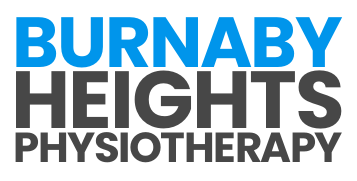At Burnaby Heights Physiotherapy, we treat tennis elbow (lateral epicondylitis) with innovative techniques. We focus on personalized care plans to reduce pain, restore function, and help our Burnaby clients regain full mobility swiftly.
Understanding Lateral Epicondylitis
Lateral epicondylitis is a condition characterized by pain and tenderness on the outside of the elbow, often resulting from overuse of the forearm muscles and tendons. This repetitive strain leads to inflammation and microtears in the tendons attaching to the lateral epicondyle, the outer part of the elbow.
Causes of Lateral Epicondylitis
Key factors contributing to lateral epicondylitis include:
- Repetitive wrist and arm motions.
- Overuse of the forearm muscles.
- Activities that involve gripping or lifting.
Recognizing these causes is essential for preventing lateral epicondylitis and creating effective treatment strategies.
Symptoms of Lateral Epicondylitis
Common symptoms include:
- Pain and tenderness on the outside of the elbow.
- Weak grip strength.
- Pain that may radiate into the forearm.
Addressing these symptoms early can prevent the condition from worsening and ensure a quicker recovery.
How We Help You Manage Lateral Epicondylitis
At Burnaby Heights Physiotherapy, we emphasize a thorough and personalized treatment plan, focusing on relieving symptoms, promoting recovery, and preventing future episodes.
Detailed Evaluation
Our evaluation process includes a comprehensive assessment to accurately assess lateral epicondylitis and determine its severity. This may involve physical exams and other tests.
Tailored Treatment Plans
Understanding that each case of lateral epicondylitis is unique, we develop customized treatment plans tailored to your specific needs and goals.
Physiotherapy: An Effective Line of Defense
Physiotherapy is a cornerstone of our treatment approach, aiming to reduce tendon irritation, strengthen the muscles, and improve elbow function.
- Manual Therapy: We employ techniques such as massage and joint mobilization to alleviate pain and enhance mobility.
- Targeted Exercises: Our exercise programs are designed to strengthen the forearm muscles, improve flexibility, and reduce stress on the tendons.
Ergonomic Adjustments and Lifestyle Advice
To complement our treatments, we offer guidance on ergonomic and lifestyle modifications:
- Ergonomic Recommendations: Tips for adjusting your work and daily activities to minimize strain on your elbow.
- Lifestyle Modifications: Advice on activities and practices that support your recovery and help prevent recurrence.
Our Range of Services
Burnaby Heights Physiotherapy provides a comprehensive range of treatments for musculoskeletal conditions, with a dedicated team in Burnaby committed to offering tailored care that meets your specific health needs.
- Physiotherapy Clinic
- Acupuncture Clinic
- Massage Therapy
- Certified Hand Therapy
- Intramuscular Stimulation Therapy (IMS)
- Shockwave Treatment
- Concussion Rehabilitation
- Vestibular Rehabilitation
Why Choose Burnaby Heights Physiotherapy?
Selecting Burnaby Heights Physiotherapy means choosing a clinic dedicated to your recovery and well-being. Our expertise in innovative treatments and client-centred care sets us apart.
Our Commitment to You:
- Effective care from experienced rehabilitation professionals.
- A supportive environment that fosters recovery.
- Customized treatment plans designed for optimal results.
Don’t Let Pain Rule Your Life
If lateral epicondylitis is impacting your life, reach out to Burnaby Heights Physiotherapy in Burnaby. Our team is ready to develop a personalized treatment plan that addresses your unique needs and goals, guiding you toward a speedy and effective recovery. Allow us to help you regain the comfort and functionality in your daily activities.
Innovative Treatments for Common Elbow Conditions
|
|
Lateral Epicondylitis Treatment Burnaby FAQs
Can Lateral Epicondylitis Be Prevented?
Preventing lateral epicondylitis involves adopting ergonomic adjustments and modifying activities that strain the forearm muscles. This includes taking regular breaks from repetitive tasks, using proper equipment and techniques during physical activities, and performing exercises to strengthen the forearm muscles. Early intervention upon noticing symptoms can also significantly reduce the risk of developing severe lateral epicondylitis.
How Long Does Recovery from Lateral Epicondylitis Take?
The recovery time from lateral epicondylitis varies depending on the severity of the condition and the individual’s response to treatment. Most people experience significant improvement within a few weeks to months of starting treatment. However, complete recovery, especially for severe cases, might take longer. Adhering to the prescribed treatment plan, including physiotherapy exercises and lifestyle modifications, is essential for effective recovery.
What Lifestyle Changes Can Help Manage Lateral Epicondylitis?
Adopting lifestyle changes is pivotal in managing and preventing lateral epicondylitis. This includes practicing proper body mechanics during activities that involve the use of the arm and wrist. Implementing ergonomic adjustments at work and home to reduce strain on the forearm muscles is also beneficial. Additionally, engaging in regular stretching and strengthening exercises for the arm, wrist, and shoulder can improve muscle endurance and flexibility, potentially mitigating the risk of recurrence.
Can Lateral Epicondylitis Recur After Treatment?
Yes, lateral epicondylitis can recur, especially if the initial causes, such as repetitive strain or overuse of the forearm muscles, are not adequately addressed. To minimize the risk of recurrence, it’s crucial to continue practicing ergonomic adjustments, lifestyle modifications, and forearm strengthening exercises even after symptoms have resolved. Regularly assessing and adjusting work and leisure activities to avoid excessive strain can also help prevent recurrence.
Burnaby Heights Physiotherapy
3970 Hastings St #210, Burnaby, BC V5C 6C1, Canada
604 – 294 – 3911
Hours:
Monday to Friday: 7:00 AM – 8 PM
Saturday: 7:00 AM – 2:00 PM
Sunday: Closed


